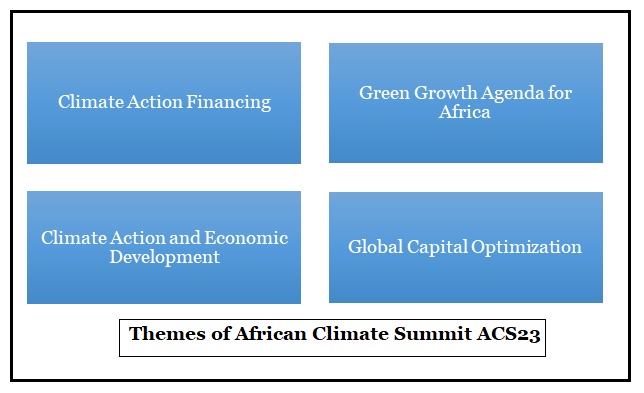7667766266
enquiry@shankarias.in
The 1st Africa Climate Summit (ACS23) held in Nairobi culminated in the ‘Nairobi Declaration’, giving the continent a common voice ahead of upcoming key global engagements.

Climate financing
To meet the emission reduction targets outlined in the Paris Agreement, Africa requires a substantial USD 2.8 trillion by 2030.
Global taxes and funding mechanisms
Decarbonisation
G20 countries are responsible for around 80% of global greenhouse gas emissions.
References